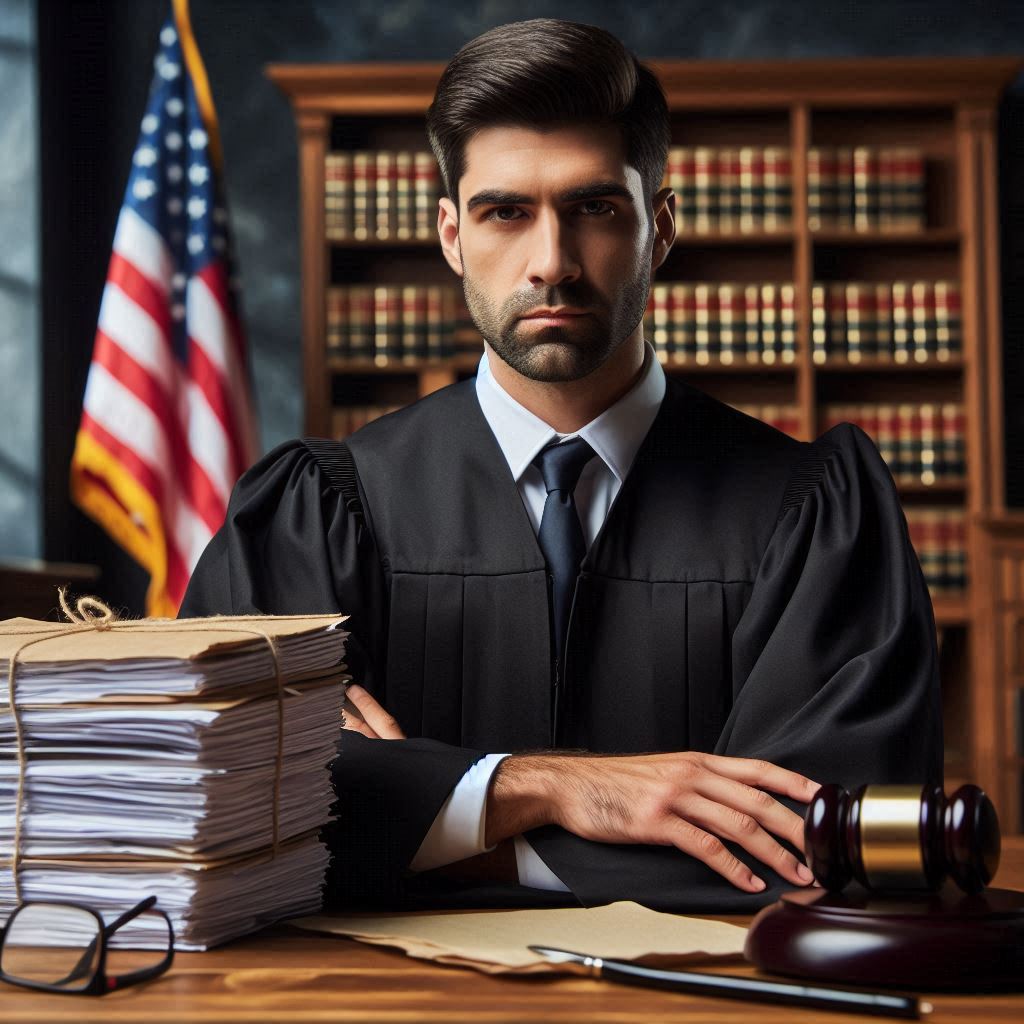Introduction
A public defender is a lawyer appointed by the court to represent individuals who cannot afford private legal counsel.
Public defenders play a crucial role in the judicial system, ensuring that everyone receives fair representation regardless of their financial status.
They uphold the principle of justice by advocating for defendants’ rights and providing competent legal defense.
The importance of public defenders cannot be overstated.
They serve as the backbone of the criminal justice system, safeguarding the constitutional right to a fair trial for those who lack the means to hire an attorney.
Their work helps maintain balance and equity in the courtroom, preventing the legal system from becoming biased against the economically disadvantaged.
This blog post will cover the duties and responsibilities of public defenders, the challenges they face in their roles, and the significant impact they have on the legal system.
We will gain a comprehensive understanding of the essential role public defenders play in maintaining the integrity and fairness of our judicial process.
Qualifications and Education
Educational requirements to become a public defender
To become a public defender, aspiring lawyers must first obtain a bachelor’s degree in any field.
However, pre-law, political science, or criminal justice are common choices.
After earning a bachelor’s degree, the next step is to attend law school, which typically takes three years.
Admission to law school requires passing the Law School Admission Test (LSAT).
In law school, students focus on criminal law, constitutional law, and trial advocacy.
Participating in internships and clinics provides practical experience.
After graduating from law school, candidates must pass the bar exam in the state where they plan to practice.
This rigorous exam tests legal knowledge and skills.
Skills and qualities needed for the job
Public defenders need excellent communication skills to effectively represent and advocate for their clients in court.
Strong analytical skills are crucial for interpreting laws, analyzing cases, and developing defense strategies.
Public defenders must be adept at negotiation to plea bargain and achieve favorable outcomes for clients.
Empathy and compassion are essential qualities, enabling public defenders to understand and support clients from diverse backgrounds.
Public defenders must handle high caseloads efficiently, requiring strong organizational and time management skills.
Resilience and perseverance are necessary to cope with the challenges and emotional demands of the job.
Importance of having a passion for social justice
A passion for social justice drives public defenders to fight for the rights of marginalized individuals.
This passion ensures commitment to providing the best defense possible, regardless of the client’s background or circumstances.
Public defenders play a critical role in addressing systemic inequalities within the legal system. Their dedication helps balance the scales of justice.
Advocating for social justice involves more than just legal representation; it includes raising awareness about injustices and working towards reform.
Public defenders often work in underfunded and resource-limited environments, where passion for justice sustains their motivation and effectiveness.
Having a passion for social justice fosters a deep sense of fulfillment and purpose in the work of a public defender.
Generally, becoming a public defender requires a solid educational foundation, essential skills, and a profound passion for social justice.
The journey involves obtaining a bachelor’s degree, attending law school, and passing the bar exam.
Developing strong communication, analytical, and organizational skills is vital for success in this demanding role.
Above all, a passion for social justice is crucial, driving public defenders to advocate for the rights of the underserved and work towards a fairer legal system.
This commitment ensures that public defenders remain dedicated, resilient, and effective in their pursuit of justice for all.
Role in the Criminal Justice System
Overview of the Role of a Public Defender
Public defenders represent individuals accused of crimes who cannot afford private attorneys.
Their primary duty is to ensure that all defendants receive a fair trial.
Public defenders work tirelessly to investigate cases, gather evidence, and interview witnesses.
They also file motions, negotiate plea bargains, and represent clients in court.
Transform Your Career Today
Unlock a personalized career strategy that drives real results. Get tailored advice and a roadmap designed just for you.
Start NowPublic defenders must provide competent legal representation, adhering to ethical standards. They aim to protect the constitutional rights of their clients.
Differences Between Public Defenders and Private Attorneys
The public defenders and private attorneys both represent clients in criminal cases, but their employment circumstances differ significantly.
Public defenders are government employees, while private attorneys operate independently or within law firms.
Public defenders handle a higher volume of cases, often leading to heavy workloads.
In contrast, private attorneys typically manage fewer cases, allowing for more time per client.
Clients of public defenders do not pay for legal services, as these are funded by the government.
Private attorneys charge fees, which can be substantial, depending on the complexity of the case.
Public defenders may face resource constraints, such as limited access to expert witnesses or investigative services.
Private attorneys often have more resources available to them, which can be leveraged to build stronger defenses.
Despite these differences, both public defenders and private attorneys are bound by the same ethical obligations and legal standards.
They must provide diligent and competent representation to their clients.
Importance of Providing Legal Representation for Those Who Cannot Afford It
Legal representation for all individuals, regardless of financial status, is a cornerstone of the justice system.
The Sixth Amendment guarantees the right to counsel for anyone accused of a crime.
Public defenders ensure that this constitutional right is upheld.
Without public defenders, many individuals would face the legal system alone, unable to adequately defend themselves.
The presence of public defenders helps to maintain the integrity of the judicial process.
They provide a necessary balance against prosecutorial power, ensuring that justice is fairly administered.
Access to legal representation helps to prevent wrongful convictions.
Public defenders work to uncover evidence, question witnesses, and present defenses that might otherwise be overlooked.
By representing indigent clients, public defenders promote equality within the justice system.
They ensure that financial limitations do not determine the outcome of legal proceedings.
Essentially, public defenders play a vital role in the justice system.
They provide essential legal services to those who cannot afford private attorneys, ensuring fair trials and upholding constitutional rights.
The differences between public defenders and private attorneys highlight the unique challenges and responsibilities faced by public defenders.
Their work is crucial in maintaining a fair and equitable legal system, where all individuals have access to competent legal representation.
Read: Big Law vs. Small Firms: Which Suits Your Ambition?
Client Representation
How public defenders are assigned clients
Public defenders are assigned clients based on the court’s determination of indigency.
This process ensures that individuals who lack financial resources receive legal representation.
Once a defendant is deemed indigent, the court assigns a public defender from the local public defender’s office.
This assignment ensures the defendant has legal counsel throughout their case.
Public defenders may also be appointed by the court during arraignments or first appearances, ensuring immediate legal assistance.
Caseloads are managed to balance the workload among public defenders, although high caseloads can be a challenge.
Building relationships with clients
Building a strong relationship with clients is crucial for effective representation. Public defenders must establish trust and open communication.
Public defenders meet with clients to discuss their case details, explain legal procedures, and understand the client’s perspective.
Active listening and empathy help public defenders gain their clients’ confidence, ensuring they feel heard and respected.
Regular updates and clear communication about case progress keep clients informed and involved in their defense strategy.
Public defenders must be patient and non-judgmental, fostering a supportive environment where clients feel comfortable sharing sensitive information.
Ensuring that clients’ rights are protected throughout the legal process
Public defenders play a critical role in protecting their clients’ constitutional rights, such as the right to a fair trial and the right to remain silent.
They rigorously review case evidence to identify any violations of the client’s rights, such as unlawful searches or coerced confessions.
Public defenders file motions to suppress evidence obtained illegally and challenge procedural errors that could impact the client’s case.
Transform Your Career Today
Unlock a personalized career strategy that drives real results. Get tailored advice and a roadmap designed just for you.
Start NowDuring court proceedings, public defenders advocate zealously on behalf of their clients, ensuring their voice is heard and their rights are upheld.
They negotiate plea bargains, aiming for the best possible outcome while protecting the client’s legal interests.
Public defenders also provide guidance on the legal implications of different decisions, helping clients make informed choices.
In fact, public defenders play a vital role in the legal system by ensuring that individuals who cannot afford private attorneys receive competent legal representation.
They are assigned clients based on indigency determinations by the court, ensuring access to legal counsel.
Building strong relationships with clients through trust and open communication is essential for effective representation.
Public defenders work diligently to protect their clients’ rights throughout the legal process, advocating for fair treatment and challenging any violations.
By fulfilling these responsibilities, public defenders uphold justice and contribute to a fairer legal system for all.
Read: Case Law Basics: Noteworthy US Legal Precedents
Case Workload
Typical Caseload for a Public Defender
Public defenders often manage heavy caseloads, handling numerous cases simultaneously.
They represent clients accused of a variety of crimes, from minor offenses to serious felonies.
A typical caseload can range from dozens to over a hundred cases at any given time.
This high volume reflects the significant demand for legal representation among those who cannot afford private attorneys.
Public defenders must balance their time and resources effectively to provide each client with competent legal representation.
They handle cases involving theft, assault, drug offenses, and more serious crimes like murder.
Challenges of Managing a High Number of Cases
Managing a high number of cases presents numerous challenges for public defenders.
Time constraints are a significant issue, as each case requires thorough investigation, preparation, and courtroom representation.
Limited resources compound these challenges.
Public defenders often work with fewer resources compared to private attorneys.
Impacting their ability to access expert witnesses or conduct comprehensive investigations.
The emotional toll of handling many cases, particularly those involving severe crimes or injustices, can lead to burnout and stress.
Public defenders must cope with the pressure of high-stakes cases and the emotional demands of their work.
Heavy caseloads can also affect the quality of representation.
With limited time for each case, public defenders may struggle to provide the detailed attention and preparation each client deserves.
Strategies for Effectively Handling Multiple Cases at Once
Effective time management is crucial for public defenders handling multiple cases.
Prioritizing tasks and creating detailed schedules can help manage the workload efficiently.
Delegation is another key strategy.
Public defenders often work with support staff, including paralegals and investigators, to handle various aspects of case preparation.
Developing strong organizational skills is essential.
Keeping meticulous records and maintaining organized case files ensures that important details are not overlooked.
Public defenders can also benefit from legal technology.
Utilizing case management software and digital tools can streamline administrative tasks and improve efficiency.
Networking and seeking mentorship from experienced colleagues can provide valuable insights and strategies for managing heavy caseloads.
Learning from others’ experiences helps public defenders adopt best practices and avoid common pitfalls.
Self-care is critical to sustaining long-term effectiveness. Public defenders must prioritize their well-being to prevent burnout and maintain high performance levels.
Regularly reviewing and reflecting on cases can help identify areas for improvement.
Continuous learning and adaptation are essential for handling a dynamic and demanding workload.
In essence, public defenders face the daunting task of managing heavy caseloads while ensuring each client receives competent representation.
Effective time management, delegation, organization, and the use of technology are crucial strategies for handling multiple cases simultaneously.
By adopting these strategies and prioritizing self-care.
Public defenders can navigate the challenges of their demanding roles and continue to uphold the principles of justice and fairness.
Transform Your Career Today
Unlock a personalized career strategy that drives real results. Get tailored advice and a roadmap designed just for you.
Start NowRead: Balancing Life: How US Lawyers Manage Stress and Burnout

Courtroom Responsibilities
Preparing for court appearances
Public defenders thoroughly review all case materials before court appearances, ensuring they understand every detail.
They meet with clients to discuss the case, explain court procedures, and set expectations for upcoming appearances.
Researching relevant laws, precedents, and case law is crucial for building a strong defense strategy.
Public defenders gather evidence, interview witnesses, and prepare exhibits to present in court.
They draft and file necessary legal documents, including motions and briefs, to support their client’s case.
Rehearsing arguments and developing a coherent narrative helps public defenders present their case effectively.
Representing clients during trial proceedings
Public defenders advocate zealously for their clients during trial proceedings, ensuring their rights are protected.
They deliver opening statements that outline the defense’s case theory and highlight key points.
Cross-examining prosecution witnesses allows public defenders to challenge their credibility and undermine the prosecution’s case.
Presenting defense witnesses and evidence supports the client’s narrative and counters the prosecution’s claims.
Public defenders make objections to improper questions or evidence, safeguarding the client’s right to a fair trial.
They deliver closing arguments that summarize the defense’s case and emphasize reasonable doubt.
Advocating for clients’ best interests in front of judges and juries
Public defenders advocate for their clients’ best interests throughout the trial, aiming for the most favorable outcome.
They negotiate plea deals when it serves the client’s best interests, potentially reducing charges or sentencing.
Public defenders present mitigating factors to judges and juries, highlighting aspects of the client’s character or circumstances.
They argue for alternative sentencing options, such as probation or rehabilitation programs, instead of incarceration.
Public defenders ensure that the jury instructions are fair and accurately reflect the law.
They seek to humanize their clients, helping judges and juries see them as individuals rather than just defendants.
In summary, public defenders play a critical role in the legal system by preparing thoroughly for court appearances.
Representing clients during trial proceedings, and advocating for their best interests.
Through meticulous preparation, they build strong defense strategies and ensure their clients understand the legal process.
During trials, public defenders zealously advocate for their clients, challenging the prosecution’s case and presenting a compelling defense.
Their efforts to safeguard clients’ rights and pursue the best possible outcomes underscore their vital role in achieving justice.
Public defenders uphold the principles of a fair legal system and work towards equitable treatment for all individuals facing legal challenges.
Transform Your Career Today
Unlock a personalized career strategy that drives real results. Get tailored advice and a roadmap designed just for you.
Start NowRead: Evolution of the Legal Profession in the USA: A Timeline
Collaborating with Other Legal Professionals
Working with Prosecutors, Judges, and Other Legal Professionals
Public defenders work closely with prosecutors, judges, and other legal professionals.
They interact regularly with prosecutors to discuss case details, share evidence, and explore potential resolutions.
Building a professional rapport with prosecutors can facilitate smoother negotiations and case proceedings.
Mutual respect and open communication are key to effective collaboration.
Public defenders also engage with judges to present their clients’ cases, argue motions, and seek favorable rulings.
Understanding judges’ preferences and courtroom dynamics can improve advocacy efforts.
Collaboration with other legal professionals, such as court clerks, bailiffs, and legal aid organizations, ensures efficient case management and support for clients.
Negotiating Plea Deals and Settlements
Negotiating plea deals and settlements is a significant aspect of a public defender’s role.
Many cases are resolved through negotiated agreements rather than trials.
Public defenders must assess the strengths and weaknesses of each case to negotiate favorable terms for their clients.
This involves evaluating evidence, understanding legal precedents, and considering the client’s best interests.
Effective negotiation skills are crucial. Public defenders must communicate persuasively with prosecutors.
Presenting compelling arguments for reduced charges or lighter sentences.
They also counsel clients on the implications of plea deals, ensuring they understand the potential outcomes and make informed decisions.
Public defenders must balance achieving the best possible outcome with maintaining their client’s trust and confidence.
Building Relationships Within the Legal Community to Better Serve Clients
Building relationships within the legal community is essential for public defenders.
Strong professional networks enhance their ability to advocate effectively for clients.
Public defenders should develop positive relationships with prosecutors, which can lead to more cooperative negotiations and better plea deals.
Professional respect and courtesy go a long way in legal practice.
Relationships with judges are equally important.
Understanding a judge’s legal perspectives and courtroom preferences can inform case strategy and improve advocacy efforts.
Networking with other defense attorneys provides opportunities for knowledge exchange and support.
Public defenders can share strategies, discuss complex cases, and seek advice from experienced colleagues.
Engaging with legal aid organizations and community groups can also benefit clients.
These partnerships can provide additional resources and support services, such as housing assistance, mental health counseling, and job placement programs.
Attending legal seminars, conferences, and continuing education courses keeps public defenders informed about legal developments and best practices.
Active participation in the legal community enhances their professional reputation and effectiveness.
In short, working with prosecutors, judges, and other legal professionals is a fundamental part of a public defender’s role.
Effective negotiation of plea deals, coupled with building strong relationships within the legal community, enables public defenders to better serve their clients.
Through professional collaboration, public defenders can navigate the complexities of the legal system, uphold the principles of justice.
Conclusion
Public defenders are indispensable to the criminal justice system, ensuring fair representation for individuals who cannot afford private legal counsel.
Their role is fundamental in upholding the constitutional right to a fair trial, which is a cornerstone of our democracy.
Public defenders tirelessly advocate for their clients, safeguarding their rights and maintaining the integrity of the judicial process.
The role of a public defender is both challenging and profoundly rewarding.
They handle heavy caseloads, often with limited resources, yet their commitment to justice remains unwavering.
Public defenders face immense pressure, navigating complex legal issues and advocating for clients who might otherwise be marginalized within the legal system.
Despite these challenges, their work is critical in promoting equity and preventing systemic biases against economically disadvantaged individuals.
We encourage readers to appreciate and support the essential work of public defenders.
Understanding the significant impact they have on the lives of many can foster greater respect and admiration for their role.
Public defenders deserve recognition for their dedication to justice and their efforts to ensure that the legal system remains fair and just for all.
By supporting public defenders, we support the foundational principles of our legal system and contribute to a more equitable society.
[E-Books for Sale]
The Big Book of 500 High-Paying Jobs in America: Unlock Your Earning Potential
$19.99 • 500 High-Paying Jobs • 330 pages
Explore 500 high-paying jobs in America and learn how to boost your career, earn more, and achieve success!
See All 500 High-Paying Jobs of this E-Book
1001 Professions Without a Degree: High-Paying American Jobs You Can Start Now
$19.99 • 1001 Professions Without a Degree • 174 pages
Discover 1001 high-paying jobs without a degree! Unlock career tips, skills, and success strategies for just $19.99!




